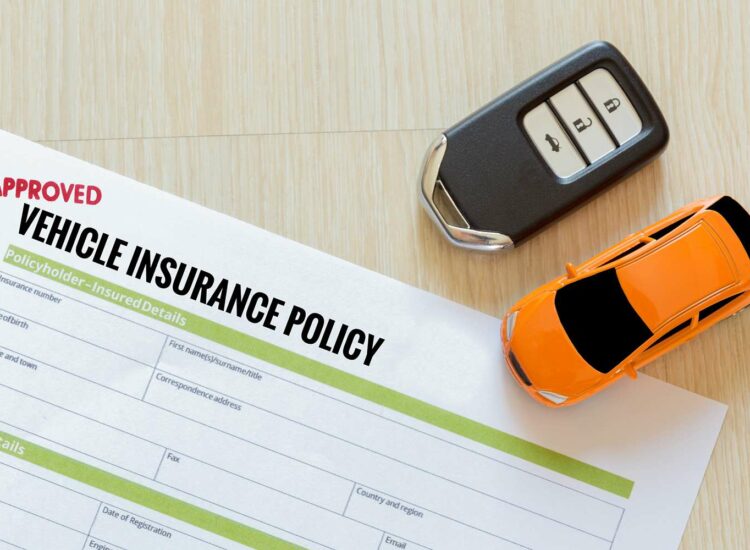The demand for criminal law professionals is surging, yet navigating the path to a successful career requires careful planning. Choosing the right law school is paramount, as the quality of education directly impacts career prospects. This guide analyzes the best law schools for criminal law, considering factors beyond rankings to help aspiring prosecutors make informed decisions. The high cost of legal education and the competitive job market present significant challenges.
Toc
- 1. Top Law Schools for Criminal Law: A Ranking and Analysis
- 2. Criminal Law Curriculum and Specializations: What to Look For
- 3. Career Services and Job Prospects in Criminal Law
- 4. Related articles 01:
- 5. Financing Your Legal Education: Financial Aid and Scholarships
- 6. LSAT Preparation and the Application Process for Aspiring Criminal Law Students
- 7. Related articles 02:
- 8. Part-Time and Online Law Programs for Criminal Law
- 9. Regional Insights: Best Criminal Law Schools by Location
- 10. Reddit Discussions: Insights from Peers
- 11. Conclusion
Top Law Schools for Criminal Law: A Ranking and Analysis

When aspiring to pursue a career in criminal law, selecting the best law school is a crucial step. Various institutions excel in this field, providing robust curricula, experienced faculty, and comprehensive career services. This section presents a ranked list of the best law schools for criminal law, incorporating data from reputable sources such as U.S. News & World Report, as well as insights from discussions on platforms like Reddit.
Ranking Methodology
The rankings of the best law schools for criminal law are determined by evaluating several critical factors. These include:
- Faculty Expertise: The qualifications and professional backgrounds of faculty members, particularly those specializing in criminal law.
- Curriculum Strength: The breadth and depth of courses offered, including specialized areas of study within criminal law.
- Career Support: The effectiveness of the law school’s career services in helping students secure internships and job placements.
- Alumni Success: The career outcomes of graduates, particularly in criminal law roles.
- Clinical Opportunities: The availability of hands-on learning experiences through clinics, externships, and internships.
Comparative Analysis of Top Schools
While the above table provides a snapshot of the best law schools for criminal law, it’s important to delve deeper into their unique offerings:
- Yale University: Often regarded as the pinnacle of legal education, Yale’s program is distinguished by its emphasis on critical thinking and interdisciplinary approaches. With a faculty that includes leading scholars in criminal law, students benefit from a rich academic environment. Yale also offers unparalleled career support, ensuring graduates are well-prepared for competitive roles in prosecution or defense.
- Harvard University: Harvard’s criminal law program is renowned for its rigorous curriculum and extensive resources. The faculty comprises some of the most respected names in the legal field, providing students with insights drawn from real-world experiences. The school’s vast alumni network offers significant career opportunities in various sectors, including government and private practice.
- Stanford University: Known for its innovative approach to legal education, Stanford combines traditional legal training with a focus on social justice and public policy. The school offers unique specialized courses in areas like advanced criminal law and justice reform, preparing students for impactful careers.
- Columbia University: Located in the heart of New York City, Columbia provides students with unparalleled access to legal practitioners and opportunities for hands-on experience through its extensive clinical programs. The faculty includes experts in white-collar crime and criminal procedure, equipping students with a comprehensive understanding of the field.
- New York University: NYU is recognized for its strong emphasis on public interest law and its extensive clinical offerings. The criminal law faculty is diverse, bringing various perspectives to the curriculum. NYU’s location also facilitates networking opportunities with professionals in the bustling New York legal market.
Schools Excelling in Specialized Areas
In addition to the top-ranked law schools, several institutions are noted for their focus on specific areas of criminal law:
- University of California—Berkeley: Renowned for its commitment to social justice, Berkeley offers specialized courses in youth justice and criminal policy, making it an excellent choice for students interested in reformative approaches to criminal law.
- University of Texas at Austin: This school has a strong reputation for its practical training in forensic evidence and criminal law. The faculty’s expertise in both academia and practice provides students with a well-rounded education.
- Georgetown University: With a focus on public interest law, Georgetown prepares students for careers in advocacy and policy reform. The school’s robust career services support graduates in finding positions that align with their values.
Criminal Law Curriculum and Specializations: What to Look For
When evaluating the best law schools for criminal law, prospective students should consider the curriculum and areas of specialization offered. A comprehensive understanding of criminal law is built upon a solid foundation of core courses, specialized electives, and experiential learning opportunities.
Core Courses
The essential courses that every criminal law student should expect to encounter include:
- Criminal Law: A foundational course that explores the principles and policies underpinning criminal justice, including the definitions of various crimes and defenses.
- Criminal Procedure: This course examines the rules governing the investigation and prosecution of criminal offenses, including constitutional protections and procedural rights.
- Evidence: Critical for any legal practitioner, this course covers the rules and principles regarding the admissibility of evidence in criminal trials.
Specialized Electives
In addition to core courses, students should seek programs that offer specialized electives, such as:
- White-Collar Crime: Focusing on non-violent offenses committed for financial gain, this course addresses the complexities of prosecuting and defending such cases.
- Juvenile Justice: This elective examines the legal issues surrounding minors in the criminal justice system, including the treatment of juvenile offenders and rehabilitation approaches.
- International Criminal Law: Students interested in global legal issues should consider courses that explore crimes against humanity, war crimes, and international legal frameworks.
- Cybercrime: With the rise of technology-related offenses, this specialization prepares students to tackle the challenges posed by digital crime.
Experiential Learning Opportunities
Practical experience is vital for success in criminal law. Law schools should offer:
- Clinics: These programs allow students to represent real clients under the supervision of experienced faculty, providing invaluable hands-on experience.
- Moot Court Competitions: Engaging in simulated court proceedings helps students develop their advocacy skills and understand courtroom dynamics.
- Internships and Externships: Opportunities to work with prosecutors’ offices, public defenders, or private firms provide practical insights into the legal profession.
Research Opportunities
Engagement in research projects under the mentorship of faculty can enhance a student’s understanding of criminal law. Many top law schools offer opportunities to participate in ongoing research, contributing to scholarly publications and advancing the field.
Career Services and Job Prospects in Criminal Law

Career support is a critical factor when selecting a law school. The job market for criminal law graduates can be competitive, and robust career services can make a significant difference in securing desirable positions.
Career Counseling and Guidance
Law schools should provide comprehensive career counseling services that help students identify their career goals, prepare for interviews, and develop effective job search strategies. Access to workshops, resume reviews, and mock interviews can enhance students’ readiness for the job market.
Internship and Job Placement Assistance
Strong internship programs are essential for gaining practical experience. Law schools that have established relationships with local law firms, government agencies, and non-profit organizations can help students secure internships that align with their career interests.
Alumni Network and Networking Opportunities
A well-connected alumni network can provide valuable resources for job seekers. Law schools that actively engage their alumni in mentoring programs, networking events, and speaker series create opportunities for students to connect with established professionals in the field.
Job Market Trends and Salary Expectations
The job market for criminal law graduates can vary by region and specialty. Generally, positions in public service may offer lower starting salaries compared to private practice. According to the National Association for Law Placement (NALP), the median salary for public defenders is significantly lower than that of private defense attorneys. However, many students are drawn to public interest roles due to their commitment to social justice and advocacy.
Career Paths
Graduates from law schools specializing in criminal law have various career paths available, including:
- Prosecutor: Responsible for bringing criminal charges against defendants, prosecutors work for government agencies and play a vital role in the justice system.
- Public Defender: Representing individuals who cannot afford private counsel, public defenders advocate for the rights of the accused and ensure fair trials.
- Private Defense Attorney: Many graduates choose to establish their practices or join private firms, representing clients in criminal cases ranging from misdemeanors to felonies.
- Legal Consultant: Some lawyers opt to work as consultants, providing expertise on criminal law matters without direct representation.
- Policy Advocate: Graduates may find roles in policy advocacy, working to reform criminal justice legislation and promote social justice initiatives.
Financing Your Legal Education: Financial Aid and Scholarships

The financial aspects of attending law school can be daunting, especially for non-traditional students or those with existing financial obligations. Understanding the various options available for financing a legal education is crucial for prospective students.
Tuition Costs and Financial Aid Options
Tuition for law schools can vary significantly. As noted in the rankings above, top law schools can charge upwards of $70,000 annually. It’s essential for students to explore financial aid options, including federal loans, grants, and scholarships.
Scholarships and Grants
Many law schools offer scholarships specifically for students pursuing criminal law. These can significantly reduce the financial burden and make legal education more accessible. Prospective students should research available scholarships and apply early to maximize their chances of receiving financial support.
Loans and Repayment Plans
For those who need to take out loans, understanding repayment options is vital. Federal student loans typically offer more favorable repayment plans compared to private loans. Students should also explore income-driven repayment plans that adjust monthly payments based on income levels after graduation.
Strategies for Managing Law School Debt
Managing law school debt requires careful planning. Students should create a budget, seek financial literacy resources, and consider part-time work during their studies to offset costs. Engaging with financial advisors can also provide tailored strategies for managing educational expenses.
LSAT Preparation and the Application Process for Aspiring Criminal Law Students
The Law School Admission Test (LSAT) is a crucial component of the law school application process. Proper preparation can significantly impact a student’s chances of acceptance into their desired program.

LSAT Preparation Strategies
Prospective law students should utilize various resources to prepare for the LSAT, including:
- Study Groups: Collaborating with peers can provide motivation and diverse perspectives on challenging concepts.
- Online Courses: Many platforms offer comprehensive LSAT prep courses that cover test-taking strategies, practice questions, and timed drills.
- Practice Tests: Taking full-length practice exams under timed conditions can help students become familiar with the test format and improve their pacing.
Crafting a Compelling Personal Statement
The personal statement is an opportunity for applicants to showcase their unique experiences and motivations for pursuing a legal career. Students should highlight relevant work experience, life lessons learned, and aspirations for the future. It’s essential to convey a passion for criminal law and the impact one hopes to make within the field.
Application Deadlines and Requirements
Each law school has its own application deadlines and requirements. Prospective students should familiarize themselves with the specific criteria for each institution they are interested in and ensure that all materials are submitted on time.
Interview Preparation
Some law schools may require interviews as part of the application process. Preparing for these interviews is crucial; students should practice common interview questions and articulate their interest in criminal law and their motivations for attending law school.
Part-Time and Online Law Programs for Criminal Law
For non-traditional students or those balancing work and studies, part-time and online law programs offer viable options for obtaining a legal education. These programs can be particularly advantageous for individuals seeking to transition into criminal law while maintaining their current employment.
Advantages and Disadvantages of Part-Time Programs
Advantages:
- Flexibility: Part-time programs allow students to balance their work commitments with their studies, making it possible to gain practical experience while earning a degree.
- Smaller Class Sizes: Many part-time programs offer smaller class sizes, fostering closer relationships with faculty and peers.
Disadvantages:
- Extended Time to Degree: Students may take longer to complete their degree, which can delay entry into the job market.
- Increased Workload: Balancing work and studies can be challenging, requiring effective time management skills.
List of Reputable Part-Time and Online Programs Specializing in Criminal Law
Several law schools are known for their part-time programs tailored to working professionals:
- Fordham University: Fordham’s part-time program offers a strong curriculum in criminal law with numerous clinical opportunities for practical experience.
- Georgetown University: Georgetown provides a flexible part-time option that allows students to engage in rigorous legal studies while managing professional obligations.
- New York University: NYU’s part-time program is designed for those seeking a comprehensive education in criminal law without compromising their careers.
- Loyola Law School, Los Angeles: Loyola offers a part-time program with a strong emphasis on practical training and community engagement in criminal law.
- CUNY School of Law: Known for its commitment to public interest law, CUNY offers part-time options that cater to working students passionate about criminal justice reform.
Tips for Managing Work and Studies
For students enrolled in part-time programs, effective time management is essential. Here are some strategies to consider:
- Structured Schedules: Create a detailed schedule that allocates time for work, classes, study sessions, and personal commitments.
- Prioritization: Identify key tasks and deadlines to prioritize effectively, ensuring that academic responsibilities are met alongside work obligations.
- Self-Care Practices: Incorporate self-care into daily routines to maintain well-being during this demanding period.
Regional Insights: Best Criminal Law Schools by Location
Geographic considerations can also influence the decision-making process when selecting a law school. Here’s an overview of some of the best criminal law schools in specific regions.

Best Criminal Law Schools in California
California is home to several esteemed law schools offering robust criminal law programs. Notable institutions include:
- Stanford University: Ranked among the top law schools in the nation, Stanford provides a strong foundation in criminal law with access to leading faculty and resources.
- University of California—Berkeley: Known for its commitment to social justice, Berkeley offers specialized courses and clinics focused on criminal law and policy.
- Loyola Law School, Los Angeles: Offers a comprehensive criminal law curriculum with opportunities for hands-on learning through various legal clinics.
Best Criminal Law Schools in Texas
Texas also boasts several reputable law schools with strong criminal law offerings:
- University of Texas at Austin: Known for its distinguished faculty and strong emphasis on experiential learning, UT Austin prepares students for successful careers in criminal law.
- Southern Methodist University (SMU): Offers a solid criminal law program with numerous networking opportunities in the Dallas area.
- Texas Southern University: Focused on public interest law, TSU provides valuable training for those interested in criminal justice reform.
Global Perspective: Best Criminal Law Schools Worldwide
For those considering an international perspective, several law schools are renowned for their criminal law programs:
- University of Cambridge (UK): Offers a comprehensive curriculum with a focus on international criminal law and human rights.
- University of Oxford (UK): Known for its rigorous academic environment and distinguished faculty, Oxford provides a strong foundation in criminal law principles.
- University of Melbourne (Australia): Offers a robust criminal law program with a strong emphasis on practical training and community engagement.
- National University of Singapore: Renowned for its focus on Asian legal systems, NUS provides a unique perspective on criminal law in a global context.
Reddit Discussions: Insights from Peers
Many prospective students turn to online platforms like Reddit to gather insights and experiences from current students and alumni. Discussions often highlight personal experiences regarding law school applications, program strengths, and career outcomes. Engaging in these conversations can offer valuable perspectives and help inform decisions about the best law schools for criminal law.
Conclusion
Choosing the right law school is a significant step toward a successful career in criminal law. By considering essential factors such as curriculum strength, faculty expertise, and career support, prospective students can make informed decisions. It’s crucial to conduct thorough research and reflect on personal goals when evaluating the best law schools for criminal law. For those contemplating a career change, the information provided here can serve as a valuable resource in navigating the journey toward legal education and a meaningful career in criminal law.
By utilizing resources like Reddit discussions and engaging with current students and alumni, aspiring legal professionals can gain additional insights into the best law schools for criminal law. Begin your research today and take the first step toward your future in this dynamic and impactful field.










